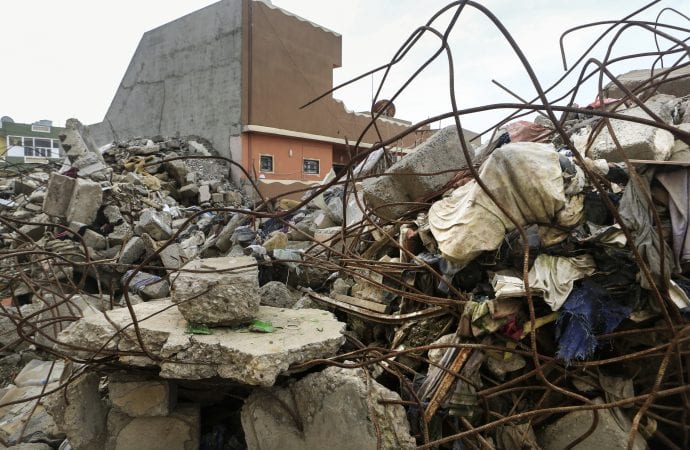One of Iraq’s top Church officials has praised the recent return of several confiscated properties belonging to Christians and other minorities, saying the move could hasten the return of families who left the country due to injustice and persecution.
The properties were restored as part of an initiative launched earlier this year by Iraqi Shiite leader Muqtada al Sadr, head of the Sadist political group, whose party currently enjoys strong representation in Iraq’s parliament. In January, al-Sadr ordered the creation of an ad hoc committee tasked with collecting and verifying complaints of the illegal expropriation of property owned by Christians and other regional minorities.
Calling al-Sadr’s move a celebration of “patriotism and humanity,” Cardinal Louis Raphaël Sako, Iraq’s Chaldean patriarch, said such initiatives “will continue to encourage Christians to return to their country and recover their property.”
So far, the committee has returned at least 50 houses and other properties to their rightful owners.
At the time the committee’s establishment was announced in early January, al-Sadr said his goal was to restore justice and to end the violation of property rights against his “Christian brothers,” including those committed by Shiites.
Christians and members of other minority communities who have left Iraq have also been invited to issue a complaint if their property had been expropriated in a bid to get them to return.
The theft of Christian-owned property and houses has been a major issue since the fall of Saddam Hussein’s regime in 2003, when militia groups emerged seeking to fill the vacuum left by Hussein’s absence.
Since then, the so-called “legalized theft” of property has been a key factor in why so many Christians and other minorities have left Iraq in recent years, complaining that corrupt officials made arrangements either with individuals or criminal groups to confiscate the properties.
On January 3, al-Sadr sent a delegation to visit Sako, bringing with them Christmas well-wishes and a copy of the document formally establishing the committee in charge of evaluating complaints and returning the properties.
Sako on that occasion thanked al-Sadr for the initiative, stressing the importance of working to protect the common good of the nation and to place this above any private or sectarian interest.
Some observers have hailed the quick return of 50 properties as a fruit of Pope Francis’s March 5-8 visit to the country. Since the pope’s visit was announced late last year, several steps have been taken favoring minorities, which also have been credited as a direct impact of the papal trip.
In December the Iraqi Parliament voted unanimously to declare Christmas an annual national holiday, and on March 8, the day of Pope Francis’s departure, President Barham Salih ratified a law benefitting Yazidi survivors of the 2014-2017 ISIS genocide.
After years of delay, so-called “Yazidi survivor law” was passed by Iraq’s parliament March 1, and ratified by Salih March 8, which marks the celebration of International Women’s Day.
Many, including Sako and Syriac Catholic Patriarch Ignace Joseph III Younan, have praised these and other steps, voicing hope that the fruits of the pope’s visit will both multiply and be long-lasting.
Speaking to Vatican News, Nadia Murad, a Yazidi woman who survived ISIS captivity and was awarded the Nobel Peace Prize in 2018, said she believes the papal visit helped shed a light on the challenges that minorities in Iraq often face, and believes it could help their situation to improve.
“The pope’s visit highlighted the potential of peace and of religious freedom,” she said, recalling how Pope Francis during his trip repeatedly insisted that “all Iraqis, regardless of their faith, equally deserve dignity and human rights.”
“His Holiness also sent a clear message that the healing of the interreligious fabric of Iraqi society must begin with the support and care of minorities, like the Yazidis, who have been subjected to violence and marginalization,” she said.
Recalling her brief meeting with Pope Francis in 2018, and his comments on his return flight from Iraq to Rome in which he said her recent book The Last Girl was an inspiration for making the trip, Murad said she was happy that her story impacted the pope, and that “he felt called to bring his message to Iraq.”
“His defense of the cause of the Yazidis is an example for all other religious leaders in the region to amplify the message of tolerance toward religious minorities such as the Yazidis,” she said, noting that some 2,800 Yazidi women and children are still missing nearly sever years after ISIS’s initial insurrection in 2014.
This fact shows that there is a “lack of political will to protect the fundamental human rights of women and their safety. It shows that sexual violence and slavery are not taken seriously by the international community,” she said, and called for a multilateral taskforce to be established with the aim of rescuing these women and children.
Murad said that if she could send a message to the women still in captivity, it would be that “it’s not your fault. Global patriarchal systems were meant to subjugate us, take advantage of our oppression and wage war on our bodies.”
“Surviving and fighting for the recognition of these injustices is an act of resistance,” she said, assuring these women that they are not alone.
“More than a third of women around the world are subjected to sexual violence. This does not mean that we have to accept it,” Murad said, adding, “There are women in every community who survive, oppose, and denounce. When we unite to fight for our rights, change becomes unstoppable.

